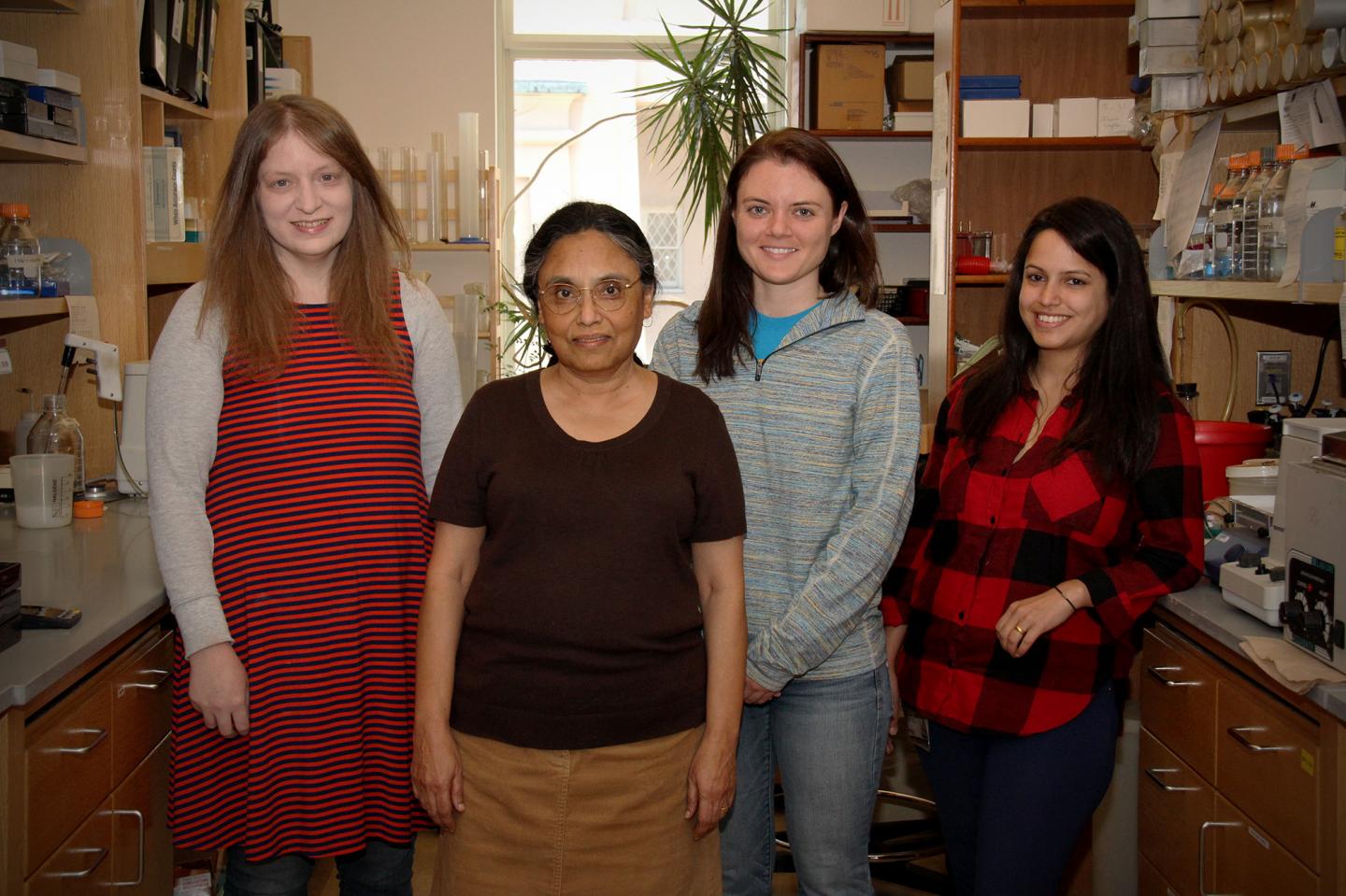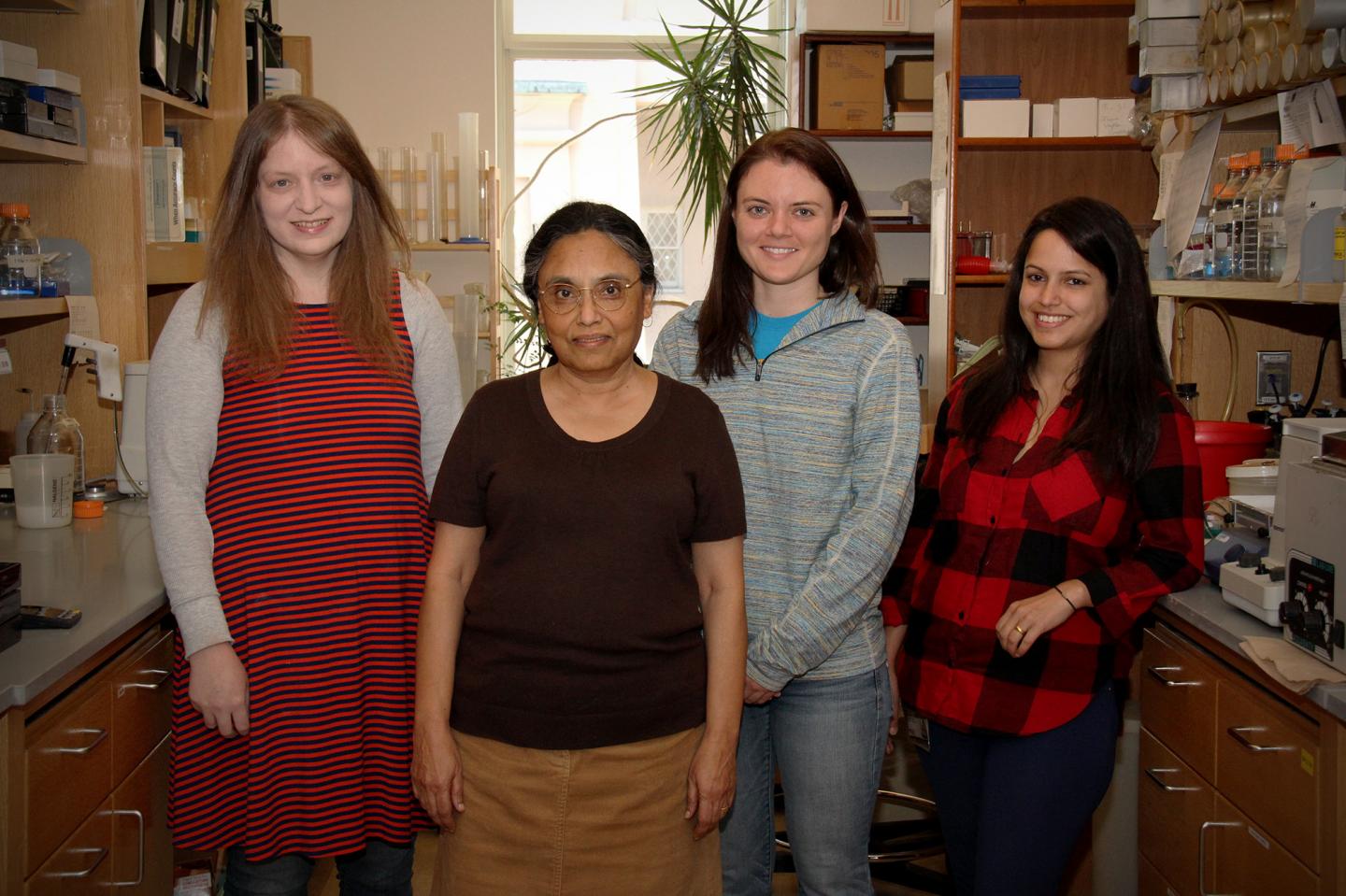
Credit: VCU Massey Cancer Center
The gene p53 functions normally as a cancer suppressor, but mutated versions of the gene have been implicated in the development and growth of nearly half of all human cancers. Now, for the first time, scientists at VCU Massey Cancer Center have uncovered a mechanism that makes lung cancer cells dependent on mutated versions of the gene, opening the potential for new, more effective treatments.
Each year, lung cancer kills more people than colon, breast and prostate cancers combined. The American Cancer Society estimates there will be more than 220,000 new cases of lung cancer in the U.S. in 2017, further underscoring the need for new, more effective therapies.
Swati Palit Deb, Ph.D., a member of the Cancer Molecular Genetics research program at Massey and an associate professor in the Department of Biochemistry and Molecular Biology at the VCU School of Medicine, led a team of scientists to reveal a strategy to prevent the growth of lung cancer in cultured cell lines as well as mouse models by blocking the function of a surveillance protein, known as ChK1, needed to increase the success of genome duplication. Deb's findings were recently published in the Journal of Clinical Investigation.
"Some mutated versions of p53, known as gain of function mutations, not only loose tumor suppressor functions, but also gain oncogenic functions. This is the first time that anyone has shown a mechanism by which cancer cells depend on gain of function mutations of the p53 gene for survival and growth," says Deb. "With this knowledge, we may be able to develop new therapies that kill lung cancer cells with gain of function p53 mutations while sparing healthy tissue."
At the heart of the researchers' discoveries is the process of genome duplication during cell growth. All cells progress through a cycle that leads to DNA replication and cellular division, and each phase of that cycle is responsible for preparing for and completing genome duplication and cell division that results in two new copies of the cell.
By studying the cancer cells' genomes–the genetic material inside of cells–the researchers showed that mutated p53 genes produce excess ChK1 and cyclin A proteins. These proteins help regulate progression through the cell cycle, and ChK1, in particular, helps prevent the collapse of what are known as replication forks. Before cell division, our genome must start replication from predestined sites, known as replication origins, to make a copy of itself for the daughter cells. The newly replicated DNA proceeds along the parent genome generating "replication forks," and several surveillance proteins, such as ChK1, prevent the newly formed forks from collapsing before DNA replication is completed. When replication forks collapse, cell division cannot be completed and the cell dies.
"Inhibitors of ChK1 have been used to prevent cancer cell growth in experiments and have progressed to clinical trials with limited success," says Deb. "The new information from our studies is that the ChK1 inhibitors should specifically be effective in stopping cancer cell multiplication in patients with gain of function p53 mutations. Thus, we feel ChK1 inhibitors have not been used to right group of cancer patients."
"We plan to develop strategies that utilize these findings to block the spread of lung cancers with mutated p53," says Deb. "And because p53 is mutated in a majority of other cancers, our findings could help inform the development of new treatments for many different cancer types."
###
Deb collaborated on this study with Steven R. Grossman, M.D., Ph.D., Dianne Nunnally Hoppes Endowed Chair in Cancer Research, deputy director and co-leader of the Developmental Therapeutics research program at VCU Massey Cancer Center and professor and chair of the Division of Hematology, Oncology and Palliative Care at the VCU School of Medicine; Sumitra Deb, Ph.D., member of the Cancer Molecular Genetics research program at Massey and professor in the Department of Biochemistry and Molecular Biology at the VCU School of Medicine; Shilpa Singh, a graduate student of Integrative Live Sciences and Catherine Vaughan, postdoctoral researcher both from the Department of Biochemistry and Molecular Biology at the VCU School of Medicine; and Rebecca A. Frum, Ph.D., postdoctoral researcher in the Department of Internal Medicine at the VCU School of Medicine.
This study was supported by National Cancer Institute (NCI) grant R01-CA107532; a VCU Massey Cancer Center Pilot Project grant; VCU Presidential Quest funding; VCU Integrative Life Sciences, who supported Singh; and, in part, by VCU Massey Cancer Center's NCI Cancer Center Support Grant P30CA016059.
The full manuscript of this study is available at: https://www.jci.org/articles/view/87724.
Media Contact
John Wallace
[email protected]
804-628-1550
@vcunews
http://www.vcu.edu
############
Story Source: Materials provided by Scienmag





